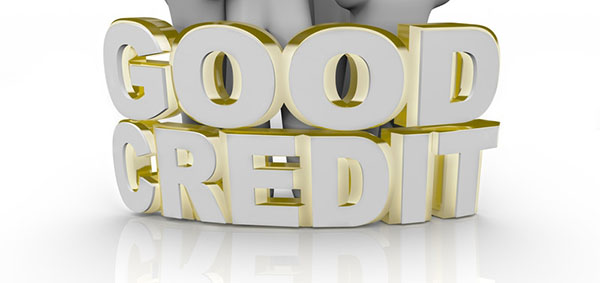For some, ignorance can be bliss, especially when the subject is money—our money. We stick our heads in the sand, hoping things will take care of themselves and any troubles will miraculously disappear. But by ignoring or hiding from your credit rating, the bad becomes worse, and the worse can result in financial disaster.
Know it
Chartered Professional Accountant Cameron Strong is CEO of Invis-Mortgage Intelligence, a firm that evaluates borrowers’ creditworthiness for mortgages for the big financial institutions. He says that peoples’ credit reports and the credit scores derived from those reports are the first things lenders consider when we apply for credit cards, mortgages or lines of credit.
“Everyone should obtain a copy of their credit report once a year, and check it for accuracy,” Cameron says. “Any errors should be reported to the rating agency immediately and in writing. It’s especially important that your report be updated and accurate if you’ve recently completed a bankruptcy or consumer proposal.”
Your credit report is also the first line of alert for identity theft, so pay close attention to any recent activity that you can’t readily identify as your own.
In Canada, two credit reporting agencies track our credit histories and assign scores: TransUnion and Equifax. Either will give you online access to your credit report in minutes for about $20.
Understand it
Your credit report is the story of your experience and track record with managing money, particularly debt. It’s requested by potential lenders when we apply to borrow money for a new car or a house. Employers may even request it when we apply for certain jobs in regulated industries.
Banks, credit card companies and other creditors or lenders report our borrowing history, habits and behaviours to the credit reporting agencies, whose services they retain to track this very thing. The agencies use this information to figure out our credit score, which is an aggregate, numerical value derived from our credit report. It can be anywhere from 300 to 900; the higher, the better.
Good credit scores are gold stars on our money-management report cards. They confirm that we are responsible, low-risk borrowers who pay our bills on time and in full. People with good credit scores have an easier time getting loans and get better interest rates when they do.
“Those small differences of a percentage point or two can amount to huge savings,” says Chartered Professional Accountant Kathy Kruivitsky, a portfolio manager with Watson Di Primio Steel (WDS) Investment Management Ltd. in Ottawa. “Over the course of a 30-year mortgage, for example, a person with poor credit could pay $90,000 or more in interest than someone with an excellent credit score.”
“Even your utility bills factor into your credit score,” says Chartered Professional Accountant David Gowling, senior vice-president with MNP Ltd. in Hamilton. “They don’t report it if your credit history is good; only if it’s bad. People who have never had credit, like new Canadians (credit history in other countries doesn’t count), young people just starting out, and those who have always paid in cash, can be even worse off than those with bad credit. They have no credit history, so they have poor scores, even if they’ve managed money well, have solid bank accounts and little or no debt.”
Improve it
All this begs the obvious question: What if your credit report has some less than optimal history, and your score is not all it could or should be? Here are nine tips these experts recommend you take to improve your credit score, manage your debts better, and ultimately, save money when you borrow.
- Pay your bills on time. This, the experts all agree, is the single, number one, best thing you can do to keep your credit rating solid. “Set your smart phone to remind you when bills are due, and always, always, pay at least the minimum,” says Kathy. “Or, better still, set up automatic preauthorized payments at the bank that will make those minimum payments for you and on time—no reminder needed.”
- Pay ALL your bills on time. Think no one cares about that $50 cell phone bill you left unpaid when you switched service providers? Don’t count on it. “One of the worst things is neglecting to pay something minor, maybe because of some kind of dispute,” says Cameron. “Often it’s a young person, maybe studying to become a professional, and their future ability to finance their education or their career can be compromised.”
- Don’t max out your credit cards. Running your cards up to the limit—even to take advantage of a reward plan—is not a good idea. “Try to keep your balance at half or less of the credit limit you’ve been given,” says David. If you need more, it’s probably better to spread it out over two cards.
- Start young to establish credit history. “The length of your credit history is a big component of your credit report,” says Cameron. “When you start college or get your first job, get a credit card with a modest limit and handle it responsibly.” Kathy often advises couples of the importance of having their own individual credit history, too. “Put the foundation in place in case a divorce or other kind of life change has you looking for credit under your own name,” she advises.
- Think strategically about cancelling credit cards you’re not using. You’d think it would make sense to get rid of unused cards that are just taking up room in your wallet. “Not necessarily,” says Kruivitsky. “When you close down a card, you lose history. Better to just put any you’re not using away in a safe place.” But if you’re applying for a large loan like a mortgage, consider that some lenders may view all available credit as a liability. In that case, you might want to cancel unused cards. Or, if you’re trying to check your spending and worry that having that card around will be just too tempting, Gowling recommends you get out the scissors and take more decisive action.
- Don’t apply for too much credit too quickly. “Looking for too much credit too soon—even for things like cell phone plans—can give the appearance of financial difficulty,” says Kathy. “Space those requests out. Wait at least six months before applying for another credit card.” It’s important, too, to apply for the right kind of credit when you need it. Don’t try to buy a car with a credit card or get a line of credit to pay for shoes.”
- Don’t take the biggest loan the bank will give you. It can be tempting to take all the money those lenders want to give us. “People sometimes think the banks won’t loan them money unless they’re sure they can repay it,” says David. “It’s simply not true. It’s not up to the bank to pay back that loan; it’s up to you.”
- Place a “check with me” warning note on your credit report file. Life happens. Couples break up, wallets get lost or stolen, among other matters. “When this occurs, call the credit rating agency,” Cameron advises. “Have them put a warning on your file to say your card’s been stolen, your identity may have been compromised, and no credit is to be granted without notifying you in writing first.”
- Get help managing money. Wrangling with creditors can result in legal judgements, your wages being garnisheed or other negative consequences. Avoid them by dealing with issues immediately and in entirety. “If you’re in bankruptcy or having to make a consumer proposal, credit counselling is mandatory,” says David. “They’ll give you tips and advice to help rebuild your credit score. But before things get that far, take advantage of the many not-for-profits, like Credit Canada Debt Solutions, that can help you learn to manage debt responsibly. You’ll be able to improve your credit report, and get all the advantages that come with a good credit score.”
Brought to you by the Chartered Professional Accountants of Ontario.
 Pride News Canada's Leader In African Canadian & Caribbean News, Views & Lifestyle
Pride News Canada's Leader In African Canadian & Caribbean News, Views & Lifestyle





